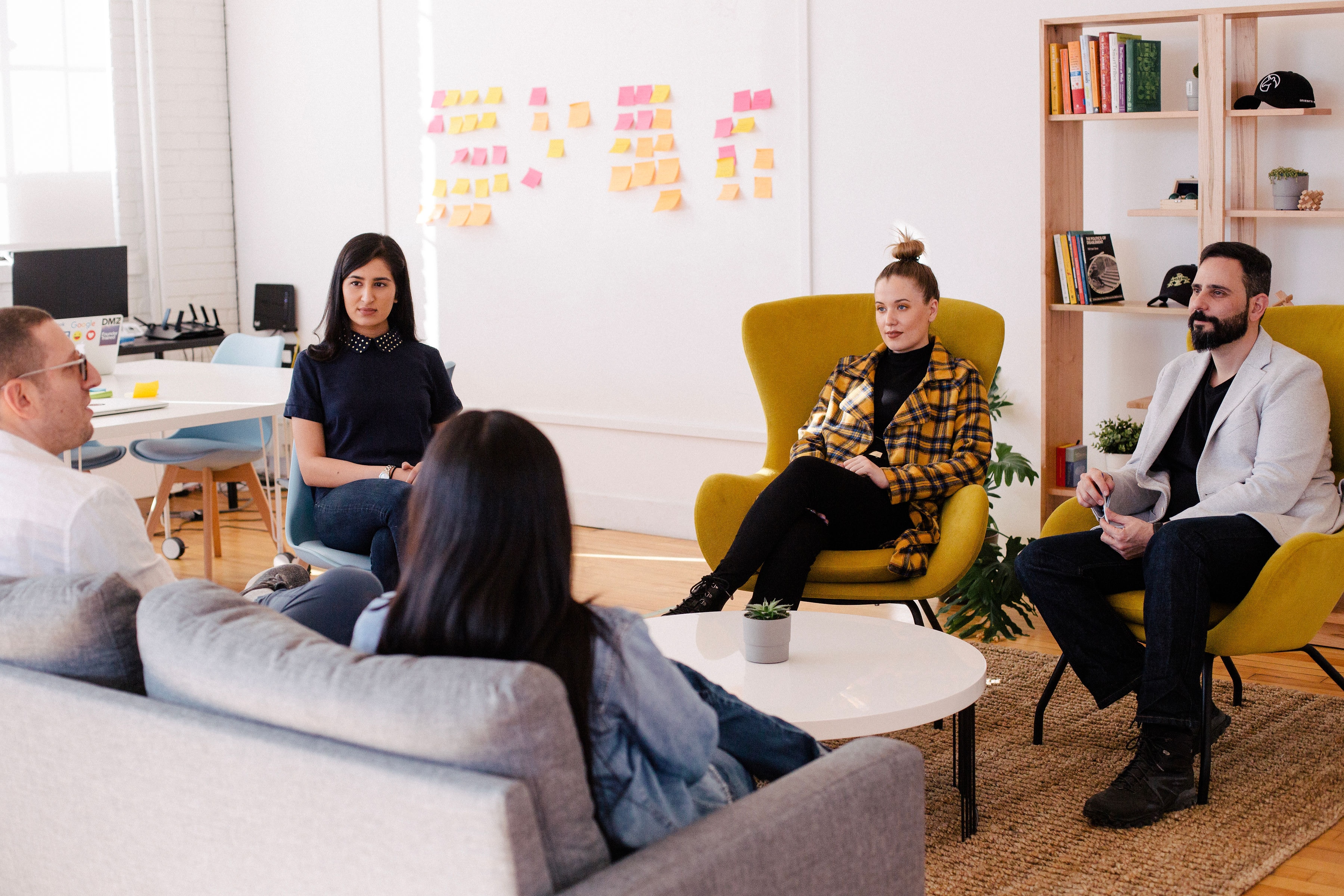Key Tips to Prepare for Your Interview

The key to interview success is preparation. This applies whether you are meeting with a potential employer or with a recruitment consultant for the first time. Here are some best practice tips to support you to prepare for a first stage in-person interview to ensure you give yourself the best opportunity to represent yourself and your experience confidently.
The short time investment you give to your preparation will serve you well in any interview. Ideally, you will come out of the meeting feeling like you have been true to yourself and demonstrated clearly that you have the:
- Technical skills and experience to do the job
- Right attitude, motivation and commitment
- Soft skills and attributes needed for the role
Now let’s look at some practical preparation tips to ensure you are best placed to do so.
Top Tips:
- Research the company.
- Become familiar with the job description.
- Know your CV.
- Prepare for common interview questions.
- Prepare for competency-based interview questions.
- Know your strengths and weaknesses.
- Be prepared to ask questions.
- Prepare for the interview day: dress code and punctuality.
Tip No. 1: Research the Company
It is important to take time to research the organisation you are meeting, as this will help you to get really clear in your own mind and heart if this is the right opportunity for you. Understanding the company in a little more depth also demonstrates to your interview panel that you are genuinely interested in the opportunity.
- History, Values and Mission: Get a feel for the organisation and its journey. Look at the company website and understand their work, services, mission and impact. If their values match yours, you can mention this at the interview and explain why they align.
- Company Strategy, News and Financials: This information may be transparent on the company website. Look on Twitter, LinkedIn and any search engine to find out further relevant information.
- Sector: Find out a little bit more about the sector the organisation operates in, and research what challenges this sector may be facing. Find out who their main competitors are and look at some websites of organisations in the same industry.
- Executive team:Look through the company website to research the organisation’s structure and leadership team.
- Culture:Review their career page and LinkedIn page to see if you can get a sense of the culture of the organisation. Try to get a behind-the-scenes perspective by reviewing their social media pages, or by asking friends in your own network if they know anyone who works at the organisation. You can also read company reviews on employer review websites, just be mindful that these reviews don’t give the full picture.
- Interview Panel Members: Find out the name of your interviewers and their job titles. Many websites carry partner profiles which you can review, or the panel members may have LinkedIn profiles where you can get a sense of their work specialism and tenure at the organisation. If you do have a LinkedIn account do ensure that your own LinkedIn profile is representing, you and your professional brand well before the interview. If your LinkedIn profile needs updating this may be a good time to do so, although many candidates chose not to have a LinkedIn profile so this suggestion may or may not apply to you in that case.
Tip No. 2: Become Familiar with the Job Description
Become familiar with the job description so that you have a good understanding of what the job requires. Draw out the key essential criteria, skills and behaviours listed on it, then go through your CV and think about the strongest examples from your career history which would evidence your relevant expertise.
Anyone can say at an interview that they have the right experience but that won’t make you stand out or prove to the interviewers that you have the capabilities for the job. The interview panel need to hear you evidence your expertise, and the best way to do so it to share specific examples from your career which back up and support your answers. In this way, your positive past experience and behaviour may well be exemplified to your potential employer as an indicator of future success.
Consider writing down your best examples and stories which demonstrate your relevant experience if that is a helpful approach for you personally. The notes you write may also be handy for you to read on the morning of your interview, reminding yourself of the key strengths you have relative to the role which will also give you a boost of confidence before going in. Your preparation work will give you the ability to feel you are in a position to answer many questions relating to the key aspects of the role.
Tip No. 3: Know your CV
Many interview panel members will ask you to talk through your previous roles or to discuss your career journey. It is important to have an in-depth knowledge of the detail you wrote on your CV, so that you are confident to talk about your experience, skills and achievements directly and honestly.
Be ready to expand on any decisions you’ve made regarding previous career moves or study. Be comfortable to answer questions on anything that appears on your CV, including any gaps in your resume. If you have completed an application form, read over it again in advance of your interview to refresh your mind on how your skills and qualifications match the role you’re applying for.

Tip No. 4: Prepare for Common Interview Questions
Take a little time to reflect beforehand on the questions which are likely to be asked as this will enhance your overall presentation. We’d never advise to prepare exact answers to interview questions which you speak word for word, however it is good to think about some questions based on the requirements listed on the job specification, and to consider how you will structure your responses to best evidence your strengths.
If an interviewer asks you to tell you about yourself, remember they are not looking for your life story. You will need to choose 3-5 key things about yourself that are relevant to the role, for example: your specific area of expertise; the number of years’ experience you have; your key skills, your motivations and your career aspirations. Practice answering this question succinctly to create a really strong opening impression.
You also need to be able to give a strong reason outlining why you are for applying to this specific organisation and role. Always guard against being negative or critical about your current or previous firms, instead you can focus on what you hope to achieve in your next role and what attracts you to the opportunity.
There are banks of common interview questions available on any search engine relative to the type of role you do, which can also be helpful to reflect upon in advance.
Tip No. 5: Preparing for Competency-based Interview Questions
When you hear the words: “Tell me about a time when…” it’s highly likely that the hiring manager is asking you a competency or behavioural based interview question.
Other variations may include:
“Give me an example of…”
“Have you ever…?”
“What would you do if…?”
“Imagine we gave you this xyz task to do, how would you approach it…?”
In the interview, you want to answer these type of questions in a concise and clear way. The STAR technique is a recommended approach to take when you are asked to describe a situation from your past professional experience in order to evidence a certain criteria needed for the role, or when you are asked to describe how you would handle an imaginary situation or task relative to the job.
STAR is an acronym for Situation, Task, Action, Result.
S – describe the context or background of the situation or project
T – describe the specific task or challenge you were given/would be given
A – describe what actions or steps you personally took/would take
R – describe the professional outcome(s) achieved
For example:
Situation: I was leading a project team to deliver an employer brand strategy. Our marketing director shifted the deadline forward by four weeks. This had a significant impact on the rest of the project team. Some could deliver to the new deadline, but others couldn’t due to work commitments in their main roles.
Task: I was tasked to deliver the project to the new timeline.
Action: I took the time to understand what was driving the marketing director to change the deadline. Once I understood what the greater overall business reason was that drove the change in timeline, I felt empowered to go back to the project team to get their buy in, thus satisfying the marketing director’s needs while being in a more informed position to negotiate with the other project team members. I thought in advance how we could deliver the project in phases if we reassigned some of the role duties. I held a meeting with the project team and clearly communicated to them why the timeline needed to be brought forward, along with the business consequences of what would happen if there were to be a delay. I then leveraged the strong relationships that I had developed with my team to influence them to meet the new deadline. 2 colleagues still couldn’t make a commitment to the new timeline, and they explained to the team why. We shared our understanding with them, and I then asked for input from the others to create a slightly revised project team plans based on urgent delivery, which we worked on and agreed together. I developed a new phased delivery plan and proposed this to the marketing director and to the team.
Result: The marketing director and the project team accepted the schedule, and we delivered the project on time. As a result we have an upgraded employer brand strategy which is being rolled out across various teams in the organisation, and I was appointed another new project worth £100k to the business.
We do not advise that you memorise your lines or your examples word for word, but it is recommended to try to have a general strategy for approaching your answers with compelling and concise examples. This STAR approach is one example of a technique which is designed to be an aid to ensure you keep your answers relevant and to the point.
Tip No. 6: Know your Strengths and Weaknesses
Analyse and assess both your strengths and weaknesses relative to the role honestly. Be prepared to answer questions regarding your strengths in a way that genuinely illustrates your best skills and attributes relative to the job, and how your strengths would contribute to you successfully delivering in this role.
Quantify your experience by backing up your strengths with a relevant example from your current or previous job history. Companies hire people to solve problems, so let the interviewer know what problems you’ve solved through your key strengths and how your previous organisation benefited as a result.
For your weakness, you can think about any knowledge, personality or experience limitations you may have relative to the JD and prepare to structure your answer in a way which demonstrates self-awareness and which also gives you the opportunity to discuss how you would go about developing this weakness or knowledge gap if you were appointed to the role. Taking this approach of talking about your weakness humanises you and helps convince the listener of your sincerity. It also demonstrates self-reflection. Voicing how you’ll approach handling your weaknesses will show your growth mind-set. Honesty is always the best policy, however there is no need to volunteer your weaknesses unless you are directly asked about them.
Tip No. 7: Be Prepared to Ask Questions
Remember, interviews are a two-way process. Think in advance about what you want from the meeting, and what questions you need to ask in order to understand the opportunity, culture and organisation better. This will also demonstrate your genuine interest and enthusiasm for the company too.
Interviewers often feedback to us that they are equally as impressed with the questions a candidate asks as the answers that they have given to their direct questions.
Candidates are often invited to ask the interview panel members questions towards the end of the interview so do reflect in advance on any questions you might have and ask them at the appropriate time. It is recommended that you avoid raising discussions of salary or work benefits at the first interview stage.

Tip No. 8: Prepare for the Interview Day
Dress for Success: You only get one chance to make a first impression and dressing appropriately for your interview is important. While a growing number of employers encourage casual wear at work, many employers still expect candidates to dress smartly at interview. There are exceptions to this, for example a small creative organisation may have different dress standards to a professional services organisation.
If you’re unsure about the dress code, you can ask about it before attending the interview. If you still have doubts about what to wear, dress professionally, while still making sure you feel comfortable in what you choose. Only opt for a more casual outfit if you’re absolutely certain that it’s acceptable. Whatever you choose, make sure that your clothes are ironed, and your shoes are clean.
Punctuality: Confirm the exact address where the interview is taking place. Many organisations have two offices in the same city so it’s important to know which one you need to be at. Make sure you know roughly how long the interview will last as you don’t want to be in the interview and concerned about your timing for your next meeting.
If you are travelling by train or bus, make sure to check the weather report the night before and check the public transport websites for any delays. Have a back-up route planned just in case it is needed. On the morning of the interview check the traffic reports and allow yourself plenty of time to travel. Ensure you have a contact number to call in case of any unforeseen delays.
Plan to arrive at reception ten to fifteen minutes early. This will allow you a little time to gather your thoughts and to observe the firm, giving you a little further direct insight into the environment and culture present in the organisation.
Lynda Morrissey, Senior Recruitment Manager, Longmire Recruitment.
Lynda specialises in supporting social purpose organisations to recruit talent up to executive level, so that their organisations are resourced and empowered to continue to make important and unique contributions to individuals and communities in our society, and to the living natural world.
For more information about this article or to register with us, email info@longmirerecruitment.co.uk
